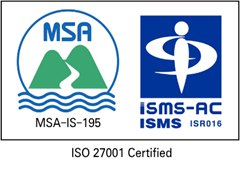Visa and Status of Residence Information
Table of Contents
Visas and Statuses of Residence in Japan
Foreign nationals wishing to stay in Japan must have a visa and a “status of residence.”
The type of visa* held by visitors varies depending on what kinds of activities they will engage in while in Japan. There are approximately 30 types of visas in Japan. Different types of visas have different requirements and permit different activities, so care must be taken when selecting the type of visa for which to apply. Please check carefully that the type of visa you wish to apply for will allow you to do what you intend to do in Japan, and that you satisfy the requirements for that type of visa.
*The difference between a “visa” and a “status of residence”:
A “visa” is what is affixed to a passport in advance by a Japanese overseas diplomatic office for the purposes of entering Japan. It is required for the passport-bearer to be allowed to enter the country. The “status of residence” is the status of a foreign national while staying in Japan. It defines the range of activities that the person can engage in while in Japan.
Foreign nationals residing in Japan are granted permission to enter the country at ports of entry based on their visa, and they are permitted to stay based on the status of residence that is granted at that time.
Below is an explanation primarily of the visas necessary for working in Japan or for staying in Japan long-term.
Working visas (some activity restrictions apply)
| Status of residence | Examples |
|---|---|
| Diplomat | Ambassadors and ministers of foreign governments, and family members |
| Official | Persons involved in official duties of foreign governments, and family members |
| Professor | University professors, etc. |
| Artist | Composers, painters, writers, etc. |
| Religious Activities | Missionaries sent by overseas religious groups |
| Journalist | Reporters and camera operators working for overseas media organizations |
| Highly Skilled Foreign Professional | Highly skilled personnel as defined by the point system |
| Business Manager | Presidents and executives of companies |
| Legal/Accounting Services | Attorneys, certified public accountants, etc. |
| Medical Services | Physicians, dentists, nurses, etc. |
| Researcher | Researchers in government-affiliated organizations and companies |
| Instructor | Elementary, junior high, or senior high school language instructors |
| Engineer/Specialist in Humanities/International Services | Mechanical engineers, interpreters, designers, language instructors |
| Intra-Company Transferee | People transferred from a foreign business establishment |
| Nursing Care | Nursing care workers |
| Entertainer | Actors, singers, professional athletes, etc. |
| Skilled Labor | Chefs specializing in foreign cuisine, sports trainers, etc. |
| Technical Intern Training | Technical interns |
| Specified Skilled Worker | Persons involved in operations requiring expertise in specific industrial fields |
* Working visas are granted only for work requiring advanced specialized knowledge or skills. They are not issued for physical labor or menial work.
Visa based on identity or position (no activity restrictions apply)
| Status of residence | Examples |
|---|---|
| Permanent Resident | Person who has been granted permission for permanent residence |
| Spouse or Child of Japanese National | Spouse, biological child, or specially adopted child of Japanese national |
| Spouse of Permanent Resident | Spouse of permanent resident or special permanent resident, or biological child thereof who was born in Japan and has resided in Japan since birth |
| Long-Term Resident | Persons with Japanese ancestry (third generation), child of foreign spouse from a previous marriage, etc. |
Visas for which work eligibility is decided by designated activity
| Status of residence | Examples |
|---|---|
| Designated Activities | Household employees of foreign diplomats, persons on working holidays, etc. |
Visas under which work is not permitted*
| Status of residence | Examples |
|---|---|
| Cultural Activities | Japanese culture researchers, etc. |
| Short-Term Stay | Tourists, conference participants, etc. |
| Student | University students, vocational school students, Japanese language students, etc. |
| Training | Trainees |
| Dependent (Family Stays) | Spouses and children of foreign nationals with working visas, etc. |
* Working may be permitted within specified bounds if permission is granted to work outside of the restrictions of the status of residence.
It is not possible to obtain a working visa for activities that are not listed in the tables above. This includes menial work such as that performed by construction workers or restaurant wait staff.
Additionally, it is not possible for one person to hold multiple types of visas simultaneously. If you qualify for multiple types of visas, you must choose one.
In most cases, acquiring a Japanese visa requires sponsorship from an accepting organization (company, association, or business-related entity) or an inviting person (visa sponsor). For a student visa, the sponsor would be the school, and for a working visa, it would be the employer, among others.
Note that certain requirements must be met in order to receive a Japanese visa. Even if you find a Japanese employer willing to hire you, you may not be eligible for a visa if you do not meet these requirements.
New visa types may be introduced, and changes may be made to existing visa types. For the most up-to-date information, please visit the following official websites:
Visa and Residence Information
Please check out the contents below for information and procedures regarding visas and status of residence.
Visa Application and Requirements
Visa Renewals and Changes
Other Visa-Related Information
- Residence Cards
- Visas We are Frequently Asked About
- Marriage and Visas in Japan
- Divorce and Visas in Japan
- Visas for Persons with Japanese Ancestry
- Part Time Jobs by Visa-Holders (permission to engage in activity other than that granted under the status of residence previously granted)
- Employment of Foreign Nationals in Japan
